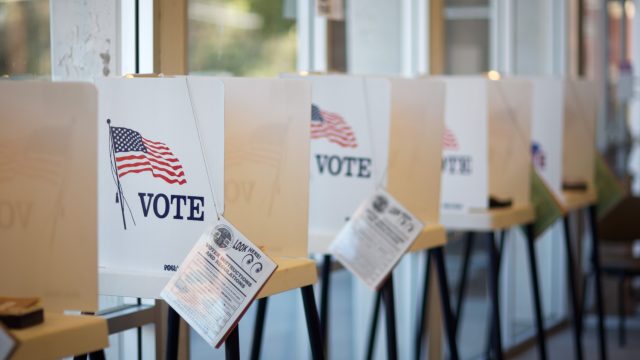From The Left: Does North Dakota Need A Shorter Election Season?

As I write this, we are in the middle of political season in North Dakota. The Republican and Dem-NPL State conventions were over 120 days ago, the state primary election was 57 days ago, and we are 90 days away from our November 4th general election.
However, unless you are a political nerd, chances are, you have given little thought to who you are going to vote for in November. Even if you are a person who is very politically active, the only time you are likely to hear from candidates you support during this time of year is when they are asking you for money to fund their post Labor Day ad buy.
I have begun to wonder if North Dakota should move its nominating conventions and primary election closer to the General Election. Perhaps have the primary election the first Tuesday after the first Monday in September rather than June would create more competitive races in North Dakota.
First off, the long gap between acquiring your party’s nomination and the general election is a nightmare for candidate recruitment. As it stands now, a candidate for office would likely declare their candidacy in January or February and, if they secured their party’s nomination, be a candidate for up to 11 months. During that time, they are forced to attempt to campaign while also needing to earn a livelihood. This is not a problem for people who are retired, self-employed, or for some other reason not in the work force. However, many employers are not interested in having their employee’s loyalties and efforts divided between their day job and their candidacy.
I worry about the situations when employers do keep candidates on the payroll during long election cycles. Many long time readers of this blog are very familiar with the cushy employment relationship State Senator Tony Grindberg had with the NDSU center of excellence. However, we only know about that because the NDSU center of excellence was partially funding by taxpayer dollars. The issue with Sen. Grindberg of coarse had to do with him double dipping while elected and serving the state; however, he was also able to run for office without any fear of his employment benefits being compromised.
I really do believe the long political season creates opportunities for quid pro quo arrangements with employers who keep candidates on the payroll in order to gain future political favors. These types of arrangements are necessary because nobody should realistically expect a candidate to leave employment for 6 months for an election he or she may lose.
Another problem with the long election cycle is the gap between the Primary and the General Election allows parties to circle the wagon and bury the story of difficult primary challenges. No better example of this than the challenge mounted by Judy Estenson against sitting Ag. Commissioner Doug Goehring. Now while it is true in the end, a majority of Republican state delegates did not have a problem with the way Goehring has mismanaged his office, I do not suspect the same would be true of all voters. As we sit, the story about the problems in Goehring’s office broke 6 months ago, and since that time, the issue has slipped from the minds of North Dakotans. When Ryan Taylor brings it up now, it will look like a partisan attack, with few remembering many Republicans also had problems with Goehring’s behavior.
The final problem with the long political season is it adds to political apathy. As any advertiser will tell you, Americans today have a very short attention span. Having a primary and a general election closer together would make the political race more of a sprint than a marathon. I know many people claim they get tired of all of the ads and discussion around general election, but the only thing worse than all of the attention on elections is people paying no attention to elections. I want people talking about issues in North Dakota more. Perhaps rather than spending time and money on endless ballot measures, special interest groups and citizen groups could spend their time pressuring candidates to support them, and then endorsing candidates who do.
On that note, I am sorry, but I find it very frustrating we use ballot measures to pass laws the Legislature won’t, and then overwhelmingly elect the same Legislators. Is there any more proof the elections are not being won based on issues?
I would really be curious to hear from anybody who thinks the current long form political gap works well. For my money, I think the process is too long and too ineffective to continue.




